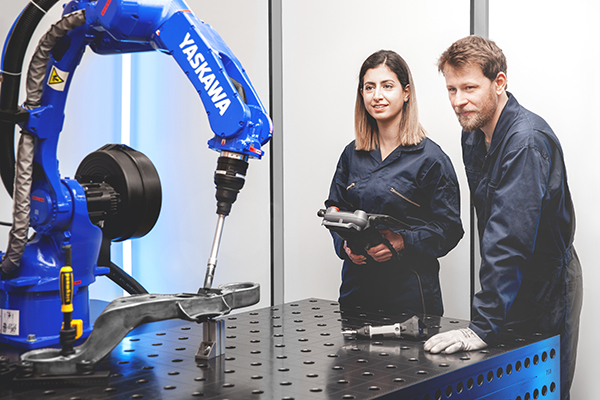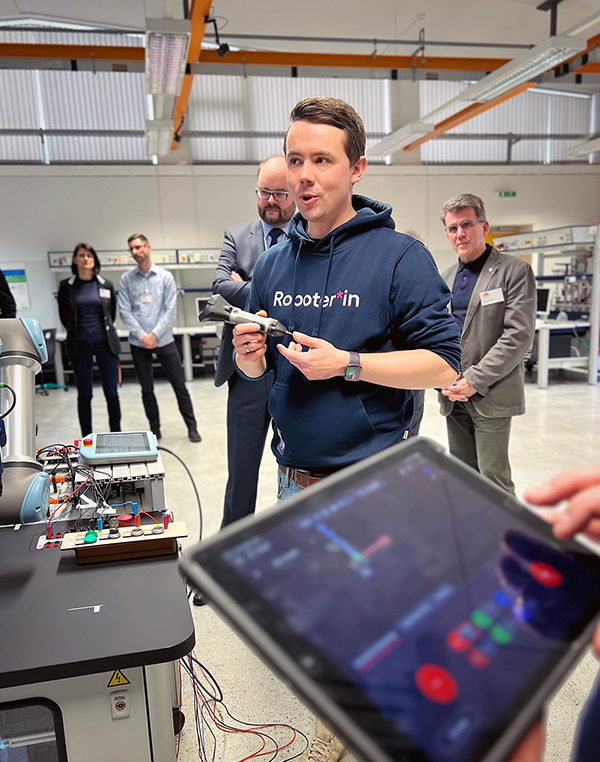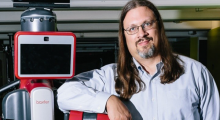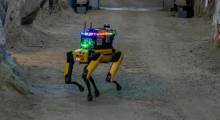As the market for industrial automation continues to grow, developers and end users need an easy-to-use platform, said Wandelbots GmbH. The company said its Wandelbots Teaching software works with any robot, allowing users to control various models with no prior programming knowledge.
Wandelbots, which recently opened U.S. headquarters in Chicago, claimed that its “no-code solution” enables users of all competency levels to program robots for maximum efficiency. The company said this ensures that robot programming is no longer reserved for experts and that applications can be automated up to 20 times faster and 10 times cheaper.
“Our product is tailor-made for the U.S. market, which is ideal as a prerequisite for successful expansion,” stated Christian Piechnick, founder and co-CEO of Wandelbots. “The labor shortage in the U.S. is severe right now and is getting worse. Wandelbots can help to face this challenge and support U.S. companies on their way towards automation and digitization of manufacturing processes.”
Founded in 2017, Wandelbots said its mission is “to empower everybody to work with robots.”
Teaching software aims to ease robot use
Dresden, Germany-based Wandelbots currently offers the Wandelbots Teaching software and the unified Wandelbots Developer Platform.
Wandelbots Teaching enables programming-free and uniform operation of all industrial robots for production up to batch size 1, said the company. For instance, a user can trace a new welding path on the workpiece with the TracePen input device in the hand and recorded by the software at the same time.
The recorded path can then be edited, tested, and executed via the intuitive 3D user interface of the teaching app, Wandelbots said. The software automatically generates the manufacturer-specific robot code in accordance with current safety standards.
To train the robots accordingly, companies need only the Wandelbots software and the TracePen, the company said. They can use them to implement numerous robot applications, such as welding, gluing, and material processing or for inspection and quality assurance.
Wandelbots said robots from Universal Robots, Yaskawa, and FANUC are currently equipped with this technology at more than 100 customers including Bayer, Fraunhofer, Rotop, Vitesco, and Volkswagen. It has partnerships with operational technology systems integrators (OTSIs) in Europe and the U.S.
Wandelbots names a U.S.-based vice president
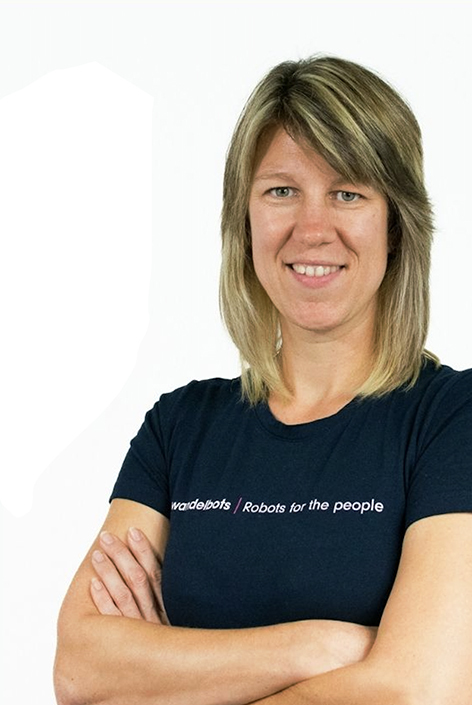
Wandelbots has obtained $123 million (U.S.) from investors including Insight Partners, Microsoft, and Next47 to fund development of its product line and global expansion.
Sue Nicole Susenburger will lead Wandelbots' U.S. division. She joined the company after nearly eight years at Bosch, most recently as global innovation strategy manager.
“Wandelbots is driven by the mission to democratize robotics,” Susenburger said. “We're providing solutions to family-owned manufacturers that are struggling with labor shortage and need help implementing automation.”
Yaskawa Motoman an early customer and partner
Wandelbots has been growing its portfolio of partnerships, including Yaskawa America Inc. Wandelbots said that Yaskawa's Miamisburg, Ohio-based Motoman Robotics Division is one of the first original equipment manufacturers (OEMs) to make it a trusted technology partner.
“The Wandelbots Teaching technology adds great value and simplicity to our robots for our customers, especially with our ArcWorld cells,” said Josh Leath, senior product manager at Yaskawa Motoman.
“The easy-to-use software paired with its intuitive TracePen input device simplifies the user experience for any of our most popular industrial robots,” he added. “It relieves the need for extensive robotics programming knowledge and opens new robotics automation opportunities for customers of all sizes.”
Founded in 1989, Yaskawa Motoman said it is a leading robotics company in the Americas. The company said that it provides automation for virtually every industry, with more than 500,000 Motoman robots installed globally.
Yaskawa said it supports automation applications including arc and spot welding, assembly, coating, dispensing, material handling, material cutting and removal, packaging, palletizing, and clinical laboratory specimen processing.
Wandelbots Teaching moves into German classrooms
Qualified junior staffers are in high demand worldwide, noted Wandelbots. Last month, the company said the Vocational School Center for Electrical Engineering in Dresden (BSZ ET) has been using its software to prepare students for the rapidly changing world of work.
“This is exactly where we started with our 'Robots for the People' mission,” said Wandelbots' Piechnick.
The school teaches trainees in the professions of electrical engineering, information technology, mechatronics, and microtechnology. Two robots have now moved into BSZ ET's classrooms.
“The invention of Wandelbots offers the school a high added value and allows practical and contemporary teaching,” said Bernd Petschke, headmaster of the BSZ ET. “Our students also learn from each other, report on learning successes and pass on their know-how.”
The program is part of the Digital School Saxony initiative and is supported by Wandelbots with Siemens, the Saxon Ministry of Education, and the Office for Economic Development of the state capital Dresden.
“We have to prepare our students for the new demands of working life. This includes robotics,” said Christian Piwarz, minister of education. “Equipping our vocational training centers with the latest technology and user-friendly software should also encourage young people's interest in it. This is how we bring the robotics know-how to the Saxon manufacturing companies and enlarge the talent pool for Saxon automation companies.”
Piwarz noted that the Ministry of Education supported the vocational school with with around €95,000 ($103,000 U.S.).
“Through such dedicated companies as Wandelbots, the attractiveness of vocational training and thus also the school [giving] certificates for high school students is increased,” added Jan Donhauser, education mayor of the City of Dresden.
Article topics
Email Sign Up

